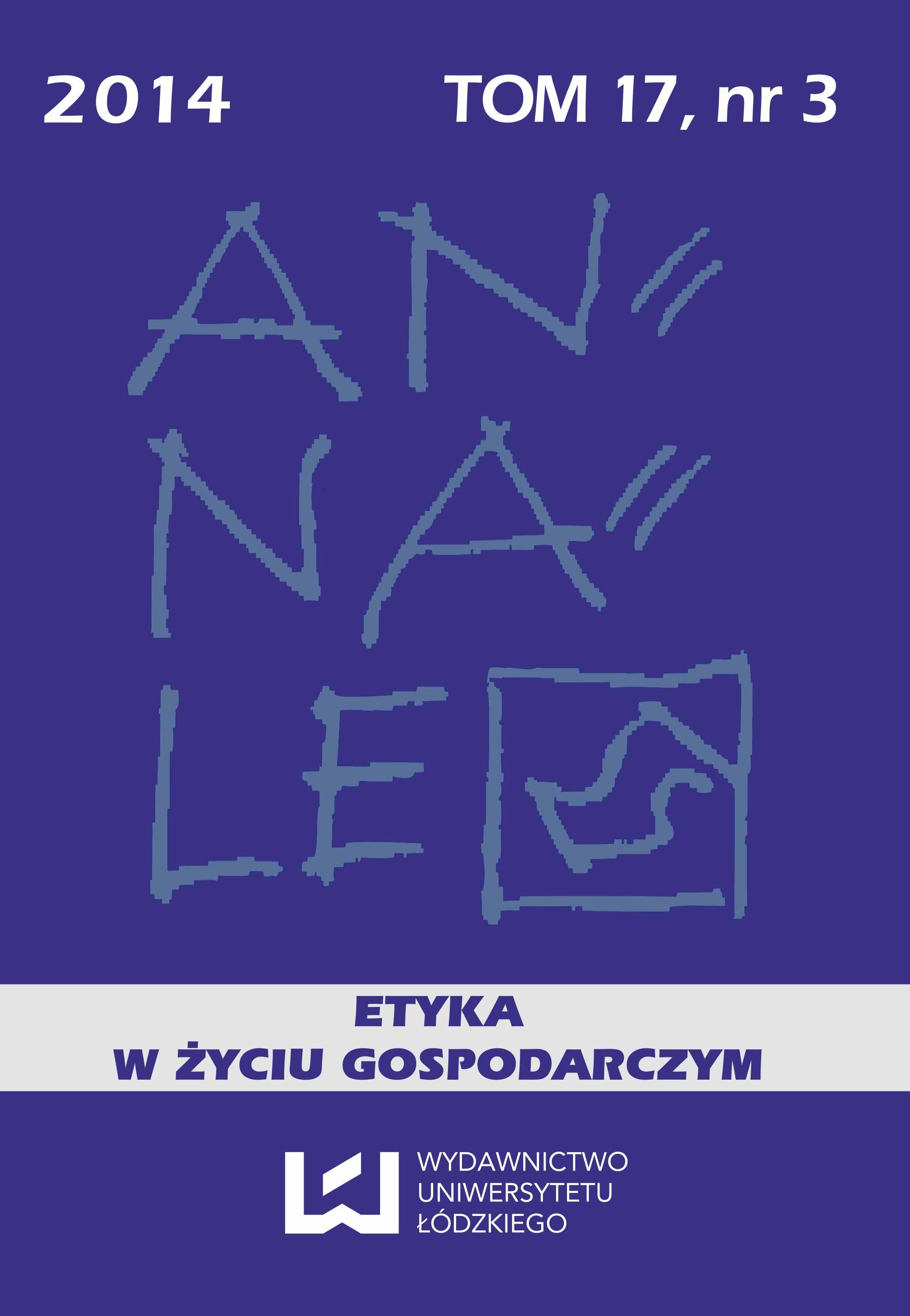Etyczne uregulowania kontaktów studentów medycyny z firmami farmaceutycznymi w Stanach Zjednoczonych
DOI:
https://doi.org/10.18778/1899-2226.17.3.10Słowa kluczowe:
pharmaceutical industry, medical education, conflict-of-intrest policies, business ethicsAbstrakt
The involvement of the pharmaceutical industry in medical education can be seen as something completely natural. Who better than the producer of the med-icine would know how the drug was developed, how the process of it being au-thorized for sale proceeded, and what the side effects of it are? Today in the United States, more and more colleges are implementing strong pharmaceutical conflict-of-interest policies. Interaction between students and medical school staff with these companies is undesirable, because they share marketing materi-als more often than honest data, and their representatives use various ways to influence these current and future physicians during their meetings. This article will describe research which shows what pharmaceutical mar-keting directed at students looks like in the USA – its character, frequency, and potential impact on future medical decisions. Also, ways of regulating interac-tion between medical schools, their staff and students and the pharmaceutical industry will be expressed. Guidelines of the Association of American Medical Colleges, the Institute of Medicine and the American Medical Student Associa-tion will be described. At the end, questions about their influence on reality and whether medical schools’ policies can be an effective barrier for pharmaceutical marketing on medical schools will be asked.Bibliografia
American Medical Student Association, History, AMSA 2012, http://www.pharmfree.org/campaign?id=0004
Google Scholar
American Medical Student Association, Scorecard, AMSA 2013, http://www.amsascorecard.org
Google Scholar
American Medical Student Association, The Campaign, AMSA 2012, http://www.pharmfree.org/ campaign/
Google Scholar
American Medical Student Association. Evidence and Recommendations for a Model PharmFree Curriculum. AMSA, http://www.pharmfree.org/tools/resources_documents/files/ModelPharmFreeCurriculum_Final-1.pdf
Google Scholar
Association of Amercian Medical Colleges. Industry Fundning of Medical Education, AAMC 2008, https://www.aamc.org/download/157370/data/industry_funding_report.pdf
Google Scholar
Austad K., J. Avorn, J. Franklin, M. Kowal, E.G. Campbell, A. Kesselheim, Changing Interactions Between Physician Trainees and the Pharmaceutical Industry: A National Survey, „Journal of General Internal Medicine” 2013, nr 28(8), s. 1064-1071. doi: 10.1007/s11606-013-2361-0
Google Scholar
DOI: https://doi.org/10.1007/s11606-013-2361-0
Bellin M., S. McCarthy, L. Drevlow, C. Pierach, Medical Students’ Exposure to Pharmaceutical Industry Marketing. A Survey at One U.S. Medical School, „Academic Medicine” 2004, nr 79 (11), s. 1041-1045.
Google Scholar
DOI: https://doi.org/10.1097/00001888-200411000-00005
Brody H., The Company We Keep: Why Physicians Should Refuse to See Pharmaceutical Representatives, „Annals of Family Medicine” 2005, nr 3, s. 82-85.
Google Scholar
DOI: https://doi.org/10.1370/afm.259
Carmody D., P.R. Mansfield, What Do Medical Students Think about Pharmaceutical Promotion? „Australian Medical Student Journal” 2010, nr 1(1), s. 54-57.
Google Scholar
Carroll A.E., R.C. Vreeman, J. Buddenbaum, T. Inu, To What Extent Do Educational Interventions Impact Medical Trainees’ Attitudes and Behaviors Regarding Industrytrainee and Industry-physician Relationships?, „Pediatrics” 2007, nr 120 (6), s. 1528-1535.
Google Scholar
DOI: https://doi.org/10.1542/peds.2007-0363
Cialdini R.B.,Wywieranie wpływu na ludzi, GWP, Gdańsk 2003.
Google Scholar
Fein E.H., M.L. Vermillion, S.H.J. Uijtdehaage, Pre-Clinical Medical Students’ Exposure to and Attitudes Toward Pharmaceutical Industry S. H. Marketing, „Medical Educotion Online” 2007, nr 12(8), s. 2.
Google Scholar
DOI: https://doi.org/10.3402/meo.v12i.4465
Fitz M.M., D. Homan, S. Reddy, C. H. Griffith, E. Baker, K. Simpson, The Hidden Curriculum: Medical Students’ Changing Opinions toward the Pharmaceutical Industry, „Academic Medicine” 2007, nr 82 (10 Supp.), s. S1-3.
Google Scholar
DOI: https://doi.org/10.1097/ACM.0b013e31813e7f02
Hyman P.L., M.E. Hochman, J. Shaw, M.A. Steinman, Attitudes of Preclinical and Clinical Medical Students Toward Interactions with the Pharmaceutical Industry, „Academic Medicine” 2007, nr 84(1), s. 94-99. doi: 10.1097/01.ACM.0000249907.88740.ef
Google Scholar
DOI: https://doi.org/10.1097/01.ACM.0000249907.88740.ef
Lo B., M. Field (red.), Conflict of Interest in Medical Research, Education, and Practice, Institute of Medicine (US) Committee on Conflict of Interest in Medical Research, Education, and Practice, The National Academies Press, Washington DC 2009.
Google Scholar
Makowska M., Etyczne standardy marketingu farmaceutycznego, CeDeWu, Warszawa 2010.
Google Scholar
Makowska M., Etyczne standardy relacji pomiędzy lekarzami a firmami farmaceutycznymi w Stanach Zjednoczonych, „Annales. Etyka w życiu gospodarczym” 2008, t. 2, nr 11, s. 75-87.
Google Scholar
DOI: https://doi.org/10.18778/1899-2226.11.2.07
McCormick B., G. Tomlinson, P. Brill-Edwards, A. Detsky, Effect of Restricting Contact between Pharmaceutical Company Representatives and Internal Medicine Residents on Post-training Attitudes and Behavior, „Journal of the American Medical Association” 2001, nr 286 (16), s. 1994-1999.
Google Scholar
Orlowski J., L. Wateska, The Effects of Pharmaceutical Firm Enticements on Physicians Prescribing Patterns. There’s No Such Thing as a Free Lunch, „Chest” 1992, nr 102, s. 270-273. doi:10.1378/chest.102.1.270
Google Scholar
DOI: https://doi.org/10.1378/chest.102.1.270
Sierles F.S., A. Brodkey, L.M. Cleary, F.A. McCurdy i in., Medical Students’ Exposure to and Attitudes About Drug Company Interactions. A National Survey. „Journal of American Medical Association” 2005, nr 294 (9), s. 1034-1042.
Google Scholar
DOI: https://doi.org/10.1001/jama.294.9.1034
Pobrania
Opublikowane
Jak cytować
Numer
Dział
Licencja

Utwór dostępny jest na licencji Creative Commons Uznanie autorstwa – Użycie niekomercyjne – Bez utworów zależnych 4.0 Międzynarodowe.









